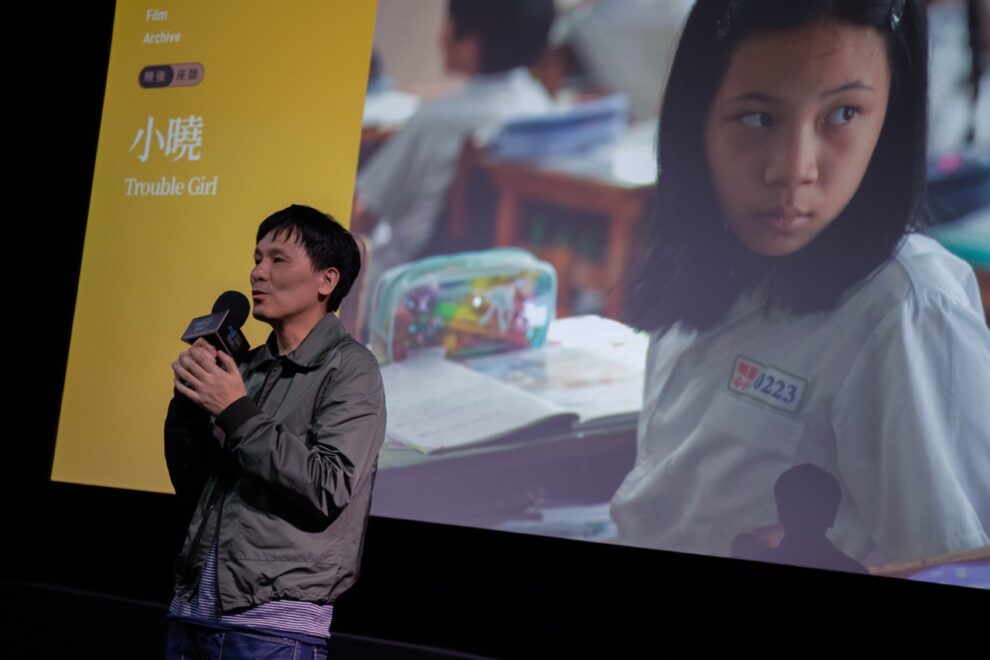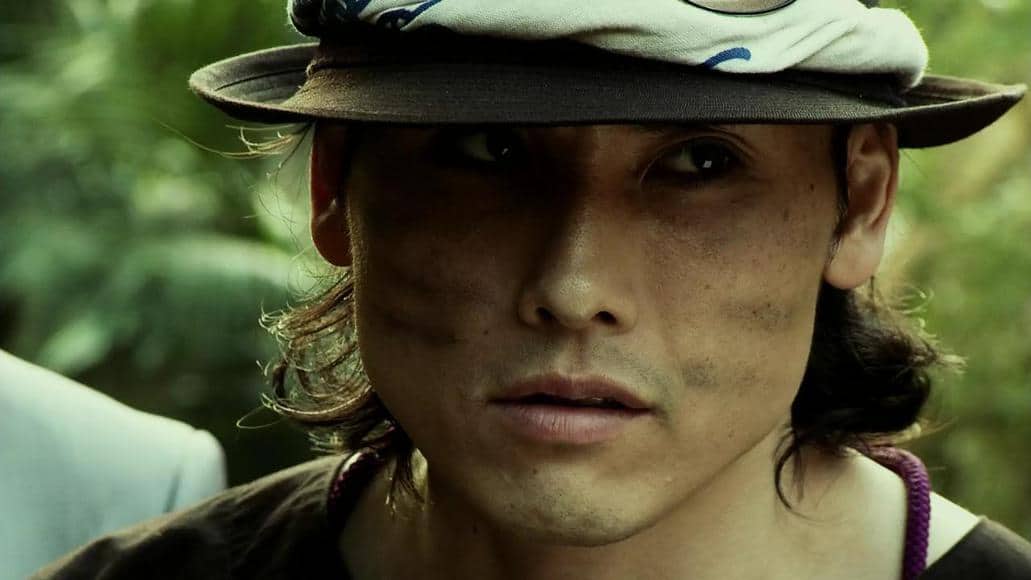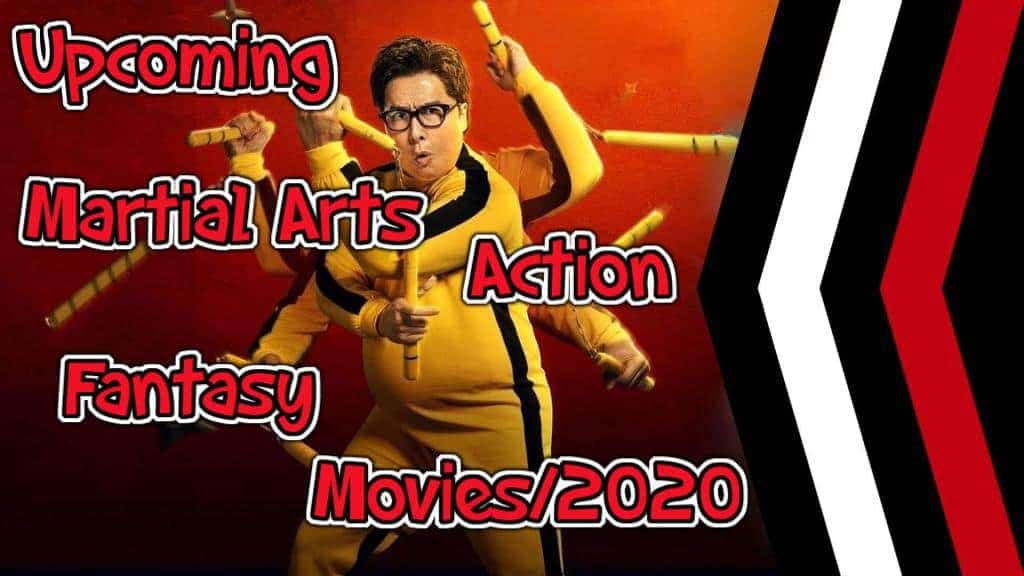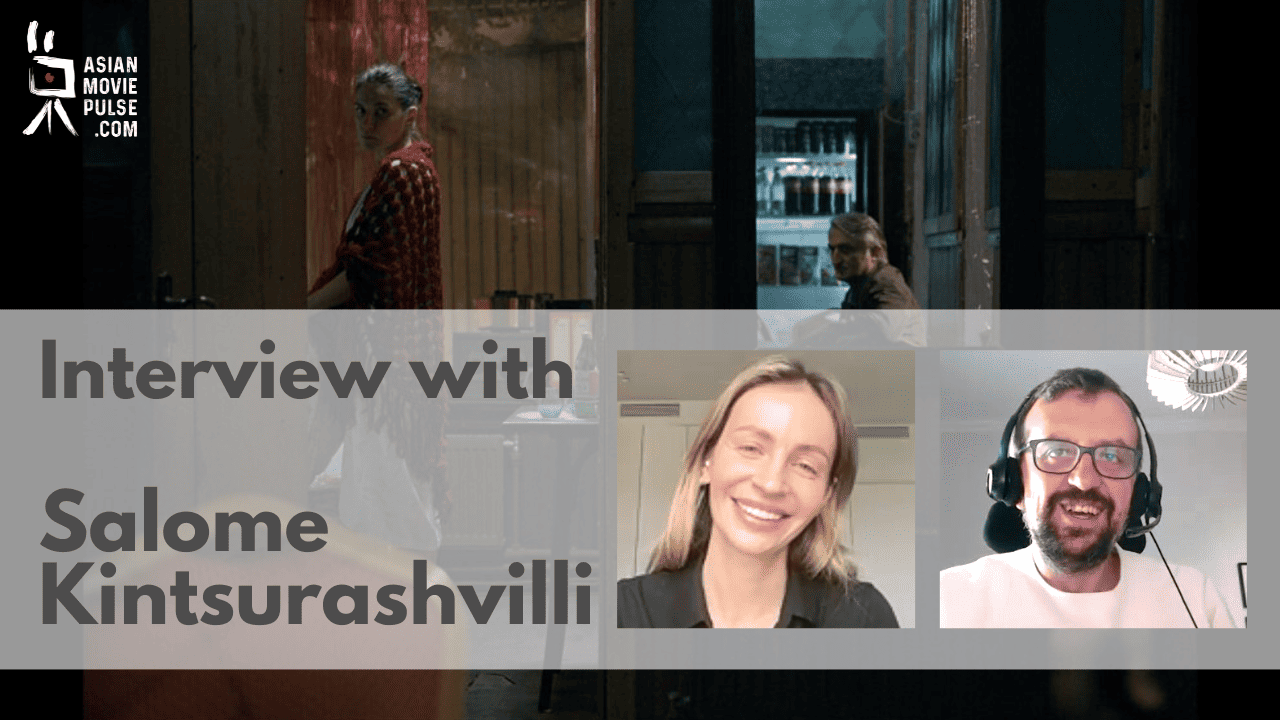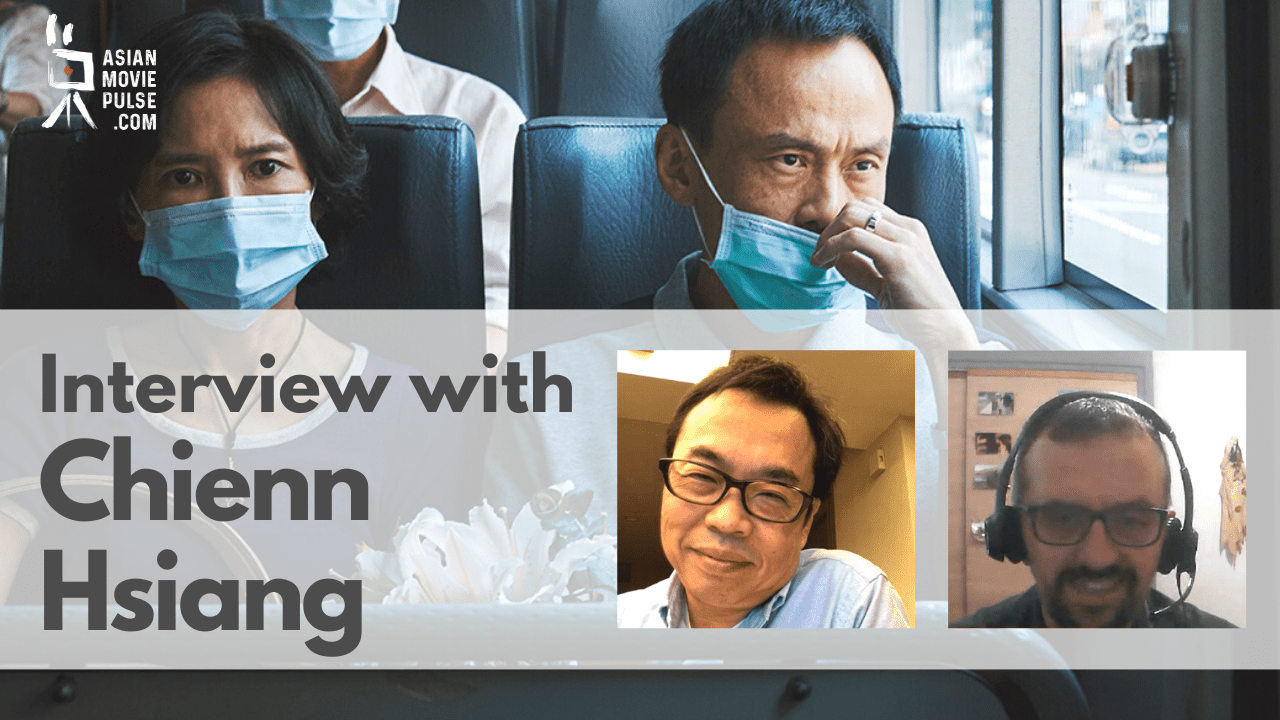Studied in the department of psychology at Taiwan University. Chin's shorts LUCKY DRAW (2019) and A COLD SUMMER (2019) have been recognized with awards at the New York Festivals – TV & Film Awards, Arc FF, Golden Bell Awards, Kaohsiung FF and have also been selected by Clermont-Ferrand International Short FF, Taipei Golden Horse FF, Short Shorts FF Asia, and Singapore Chinese FF. The screenplay MOON SPOON was awarded with 43rd Excellent Screenplay Awards. His latest featured film is TROUBLE GIRL (2023). His project A GHOST IN THE MARKET was selected for the HKIFF Industry Project Market 2024.
On the occasion of his film “Trouble Girl”, screening at Osaka Asian Film Festival, we talked with him about shooting a film about a girl with ADHD and the research he did for the movie, kids and their issues nowadays, shooting in a school with kids as actors, Paul and the owl, and many other topics
Trouble Girl is screening at Osaka Asian Film Festival
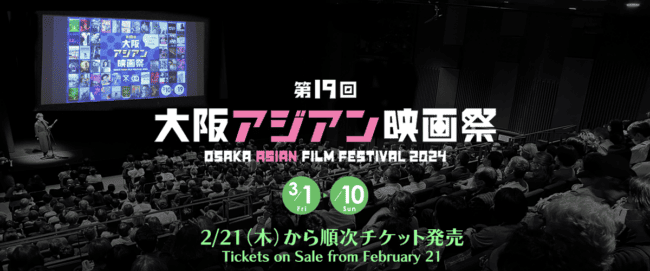
Why did you decide to shoot a film about a girl with ADHD? What kind of research did you do for the movie?
The causes of ADHD are very complex, and even now, a large portion of scientists believe that ADHD is not actually a disease. Therefore, there has always been a debate on whether to treat ADHD with medication or without medication. To me, all children could potentially be children with ADHD, and the fundamental reason for this issue lies in what our expectations are for children.
If a child is unable to sit still and complete a lesson as requested, does that mean they have ADHD? With the high prevalence of urban children being diagnosed with ADHD nowadays, perhaps we should consider whether they truly have ADHD. Or have we been wrong in our expectations of children from the beginning? In other words, who is the one with the problem, the child or the adult? This is the reason why I chose ADHD when I wanted to portray a child who struggles to fit into society.
Our film study lasted for ten years because my daughter was a suspected ADHD child before entering elementary school. Through her growing process, I gradually understood that this is becoming an increasingly common issue, especially in urban areas. Because of our daughter's situation, we have connected with many parents, teachers, and advocates for ADHD issues.
Would you say the issue with these kids is quite significant in Taiwan? I am asking because the mother does not seem to be getting particular help from anywhere.
An audience asked me about why we didn't include a school counselor in the movie to talk about how to properly treat such children. I have always chosen not to respond to such questions, simply because the answer is too obvious.
During the film study, we heard too many stories. A teacher fell and injured his tailbone after an ADHD child repeatedly pulled his chair away. A gym teacher was forced to take drastic measures against an ADHD child when he pushed his classmate's head underwater. The teacher was forced to retire early after his appeal failed.
Special education teachers are certainly trained, but any teacher who encounters or hears about the above situation may feel discouraged and adopt a cautious attitude. This is the reality of the education field, it is human nature, and it is also why we choose to portray stories from a perspective of human feeling rather than an expert's perspective in this film.
Check the review of the film
Occasionally, the kids in the school are presented as quite cruel. Is that your impression of kids that age? That they can be cruel? And if positive, why?
I want to present various real characters and real situations. I feel that children nowadays are under a lot of pressure, perhaps due to the internet or other more complex reasons. Their emotions are all in their smart phones. They don't have idols like we did, so they don't have common topics. Their segmented social circles are much more severe than when we were young, it's just that they may not tell the adults. Sometimes my daughter worries a lot about going back to school after taking a few days off, fearing that her classmates wouldn't play with her any more. I feel that they have to deal with more complex interpersonal relationships than we did when we were young.
They need more courage to live the way they want. I think the innocent era has really passed. Adults should spend more time talking to their kids about their school life, even though they always say very little.
Was it difficult shooting in a school, with students as actors?
It was difficult. Very difficult. But it is just like the hardship every parent faces. You can only deal with it patiently.
How did the casting work for the movie? How was your cooperation with Audrey Lin?
I decided it was her immediately when I saw her. When we met for a chat, she was wearing a mask because it was during the pandemic. So I treated her with a cream puff. She took off her mask slowly, finished the puff slowly and put the mask back on right away. That was it. I told my crew that I found the actress. That was exactly what I wanted, the way she did not know how to audition for a role, showing her truest self without guards. We met more than 200 kids and it took us a really long time. I felt that I didn't need to look further. I was very confident in her.
Audrey is a calm, quiet and very sensitive child. She subtly senses her surroundings. She would borrow books and watch movies to understand ADHD. All the while, she would hang around with the ADHD kids that we arranged for her. Afterwards, she would write down her observations and search for the possibility of becoming an ADHD kid herself.
For example, I showed her a photo of an ADHD kid's room. In it, things are scattered around. Audrey changed her own living habit in one week and turned her own room the same way. She took a photo and discussed with me. Before that, she was very self-disciplined and ordered. She would think about how kids with ADHD climb up the stairs and brush their teeth, even though these are not described in the script. Simply put, she tried to live like her character.
I felt that the owl mirrors Xiaoxiao in a way. Was that your purpose?
Yes, the owl is Xiaoxiao's first and last good friend. But just like the teacher, her mother, her father and her classmate, the owl eventually betrays her.
The tilted head represents confusion, as well as the posture of trying to understand. An owl tilts its head all the time. Xiaoxiao likes to imitates the owl tilting its head. It shows how much Xiaoxiao does not understand the world. After she is bullied by the whole class during the exam, her head is tilted and cannot be recovered. It means that she is greatly confused. She needs to find a way out. At the typhoon night, when the owl also hurts her eventually, she realizes that the owl is not as cute as she thinks, and her father did not actually buy the binoculars. She finally sees through this world. So her head returns to normal, meaning that she has grown up.
How would you describe Paul? Is he good to Xiaoxiao just due to his relationship with her mother, or is he a genuinely good person?
Generally, people would blame teachers for education problems. So Paul is a figure that represents these problems. In the beginning of the film, when Paul teaches Xiaoxiao to swim, he says “Believe me, I got you.” But Paul isn't actually holding her. This is the message I was trying to convey – education is accomplished a lot of times with lies.
Teachers nowadays are a role full of contradictions. At first they seem to be superior, but in the end we realize that they are just normal people who fight to survive for continuing their tenure. Like everyone else, they need to please everyone while humbly maintaining their dignity. The contrast is quite ironic.
Paul and the mother are two misfits who seek sympathy with each other – both of them try to please others. At the end, Paul gets nothing and is deserted by Xiaoxiao. I feel that he is sacrificed by the system. And there is no love affair.
Follow our tribute to Taiwanese by clicking on the image below
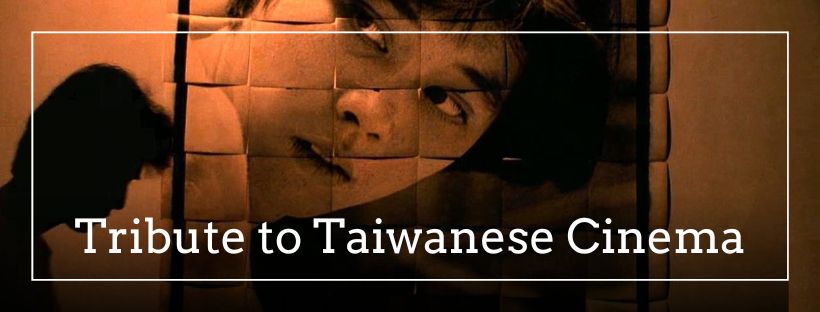
Can you give us some details regarding the cinematography of the movie? In general, what was your purpose in the visual aspect of the movie?
I wanted the feeling of darkness and pressure before a typhoon hits. This is what it feels like when you are with an ADHD child for a long time. Even adults would look forward to a typhoon, a possibility of rules and systems being completely destroyed, even though it is full of danger.
What is your opinion of the Taiwanese movie industry at the moment?
Same as the rest of the world, the film industry in Taiwan can only rely on producing more genre films to save its box office performance.
Are you working on any new projects?
At the past editions of the Film Project Promotion at the Golden Horse Film Festival, I had “Moon Spoon”, about women in love in the field of religions, and “East of the East China Sea”, a series about how a few talented IT programmers in Taiwan started their own business in the ‘90s.
After Osaka Asian Film Festival, I will be participating in HAF in Hong Kong, with “A Ghost in the Market”. I intend to make a ghost story, a genre film with social issues.


